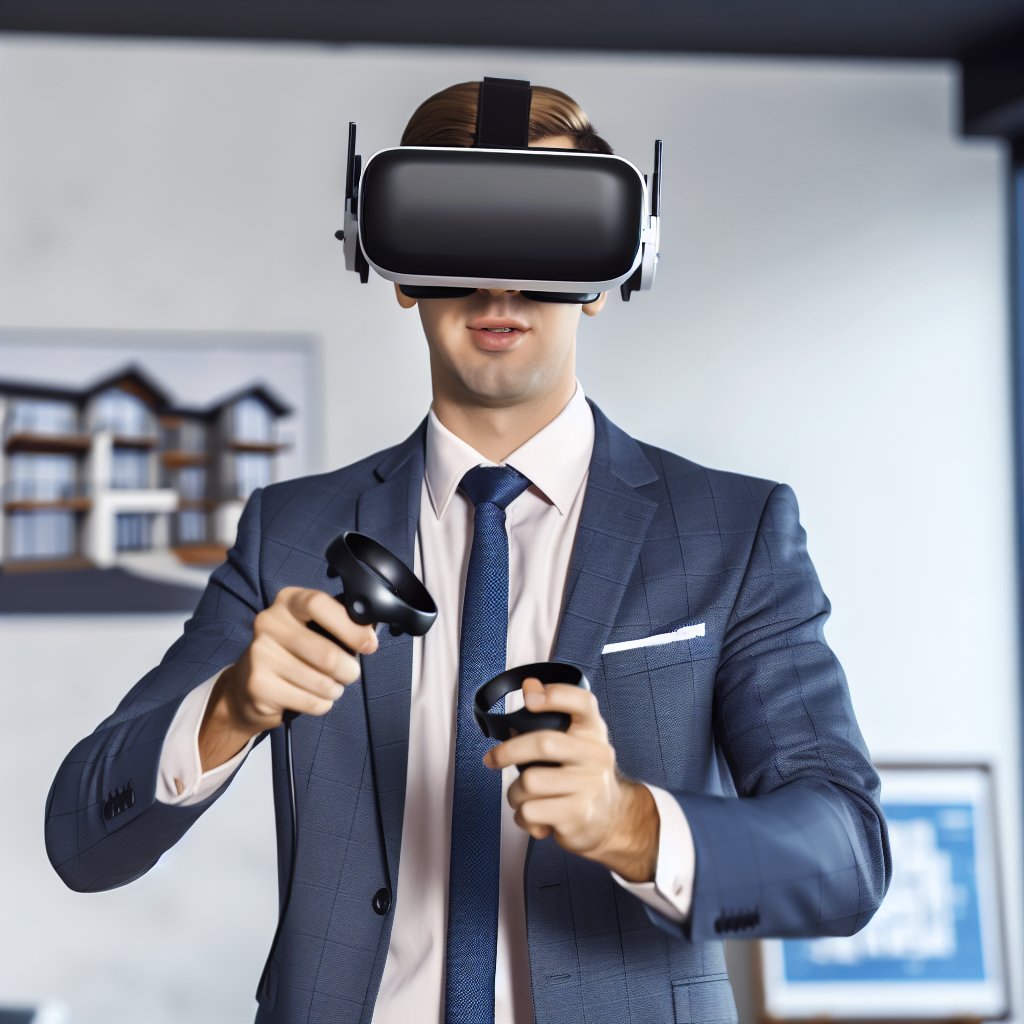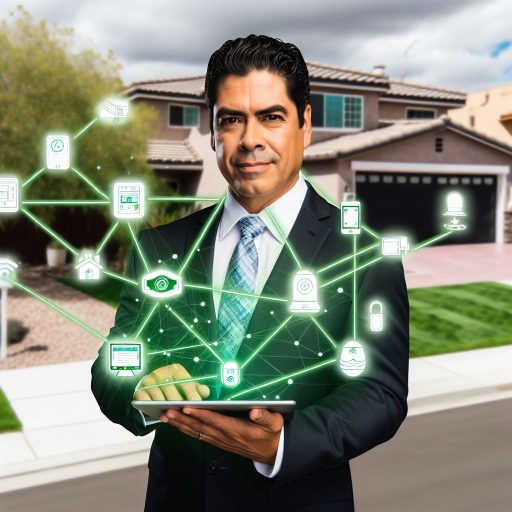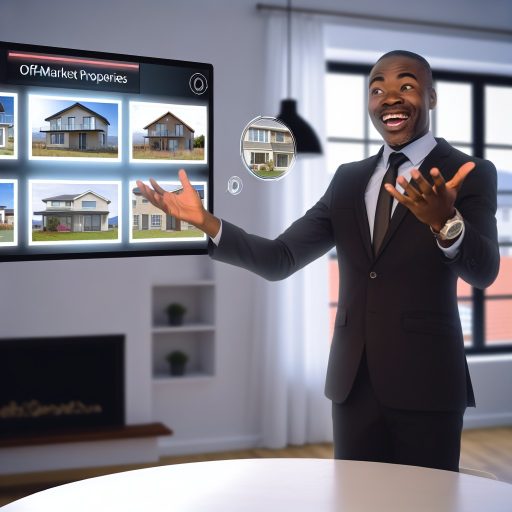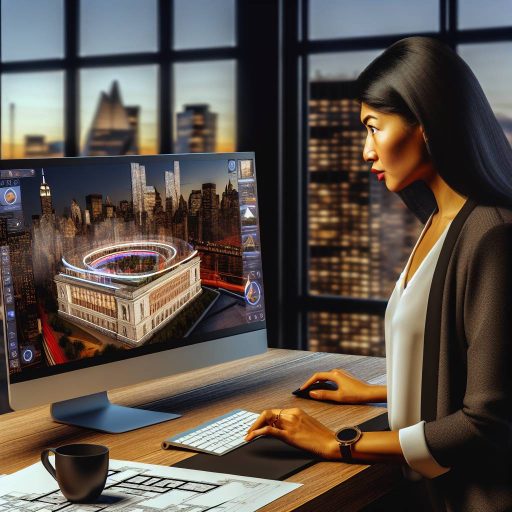Overview of Virtual Reality Technology in Commercial Real Estate
Understanding Virtual Reality
Virtual reality (VR) immerses users in a computer-generated environment.
This technology creates a simulated world that feels real to the user.
With VR, users can interact with three-dimensional spaces.
The experience is achieved through headsets and advanced software.
The Benefits of VR in Real Estate
VR transforms how commercial properties are marketed and sold.
It allows prospective buyers to tour properties remotely.
This capability saves time and resources for both buyers and agents.
Additionally, VR enhances the visualization of spaces.
Buyers can better understand layouts and design possibilities.
Enhancing Client Engagement
Engagement improves as clients experience properties in VR.
Immersive experiences increase emotional connections to spaces.
Furthermore, clients can explore multiple properties quickly.
This speeds up decision-making and reduces buyer fatigue.
Implementation in Commercial Real Estate
Real estate agencies are increasingly adopting VR technology.
Many companies provide VR solutions tailored for real estate.
For instance, firms like Matterport and RealVision lead the market.
They offer tools for creating virtual tours and 3D models.
Challenges and Considerations
Despite its advantages, some challenges exist regarding VR adoption.
Cost remains a significant factor for many real estate firms.
Additionally, there is a learning curve associated with VR technology.
Ensuring that all staff are trained is crucial for success.
The Future of Virtual Reality in Real Estate
The potential for VR in commercial real estate continues to grow.
As technology advances, experiences become more immersive.
Furthermore, future developments may include augmented reality integrations.
These innovations could further enhance property visualization and marketing.
Benefits of Virtual Reality in Property Showings and Tours
Enhanced Viewing Experience
Virtual reality transforms how clients view properties.
It allows potential buyers to immerse themselves in a space remotely.
Additionally, VR technology provides a realistic atmosphere.
This immersive experience helps clients visualize living in the property.
Consequently, they can make more informed decisions regarding purchases.
Increased Accessibility
Virtual reality breaks geographical barriers for property showings.
Clients can explore listings from anywhere in the world.
This convenience saves time and travel expenses for buyers.
Moreover, it ensures that more individuals have access to properties.
Thus, real estate companies can reach a broader audience quickly.
Efficient Marketing Tools
VR tours serve as powerful marketing tools in commercial real estate.
They create visually appealing content that captures attention.
Additionally, these tools engage potential buyers effectively.
VR experiences can be shared across various online platforms.
Hence, they increase the likelihood of generating leads.
Time and Cost Effectiveness
Using virtual reality for property tours saves time for everyone involved.
Clients can narrow down their choices faster without multiple site visits.
Real estate agents can showcase numerous properties in one day.
This efficiency directly translates to cost savings for both parties.
Consequently, businesses can allocate resources more effectively.
Customization and Personalization
Virtual reality enables personalized property experiences.
Clients can select features or modifications they would like to see.
This customization enhances their engagement with the property.
Additionally, agents can tailor tours based on client preferences.
As a result, clients feel valued and understood in their search.
Enhancing Buyer Engagement Through Immersive Experiences
Understanding Virtual Reality’s Role
Virtual reality revolutionizes how clients experience properties.
It offers immersive environments that traditional methods cannot match.
Therefore, real estate professionals leverage this technology effectively.
Creating Engaging Property Showcases
Agents can create virtual tours of commercial spaces.
These tours allow clients to explore properties from anywhere.
Buyers gain a 360-degree view of the property layout.
Moreover, they can interact with features in real time.
The Impact of Multisensory Experiences
Using VR stimulates multiple senses, enhancing engagement.
For instance, sounds and visuals make the experience more realistic.
Clients feel as though they are truly present in the space.
This sensory immersion increases emotional connection to properties.
Advantages of Virtual Reality in Sales
VR reduces the time required for property tours.
Clients can visit several listings in a single session.
This efficiency streamlines the decision-making process.
Additionally, it caters to remote or international buyers.
Successful Implementation Strategies
Real estate firms should invest in high-quality VR technology.
Training staff on VR tools is equally crucial.
Offering personalized experiences can set agencies apart.
Finally, marketing VR tours through various channels increases visibility.
Discover More: Real Estate Market Analytics Tools for Property Investors
Cost-Benefit Analysis of Implementing VR in Real Estate Sales
Introduction to VR in Real Estate
Virtual reality transforms how real estate engages clients.
It offers immersive experiences that static images cannot provide.
Moreover, it allows buyers to explore properties remotely.
This technology can significantly impact the sales process.
Direct Costs of VR Implementation
First, consider the initial investment in VR technology.
The hardware and software can be expensive.
Additionally, training staff incurs further costs.
However, these costs may lead to higher sales volumes.
Long-Term Savings and Benefits
Using VR reduces the need for physical showings.
This results in saving time for both agents and clients.
Moreover, it can lower marketing expenses.
Virtual tours can replace costly professional photography.
Enhancing Customer Experience
VR enhances the customer experience in various ways.
It allows potential buyers to visualize spaces better.
This immersive experience can accelerate decision-making.
Thus, satisfaction levels among clients may increase.
Market Competitiveness
Implementing VR can differentiate a business in a crowded market.
Innovative technology attracts clients’ attention quickly.
Consequently, real estate firms may gain a competitive edge.
Potential Return on Investment
Measuring ROI for VR implementation is crucial.
Track lead conversion rates before and after adoption.
Additionally, assess overall sales volume changes.
Data-driven insights will solidify the case for VR.
Challenges to Consider
Despite its benefits, challenges exist in VR adoption.
Firstly, maintaining technology may present difficulties.
Secondly, some clients may resist using VR.
Addressing these challenges is essential for success.
Strategic Insights on VR Investment
The analysis shows VR can be a worthwhile investment.
By weighing costs against benefits, firms can strategize effectively.
Ultimately, the goal is to enhance sales and customer satisfaction.
Learn More: Exploring Security And Privacy Concerns In USA Real Estate Mobile Apps
Case Studies: Successful Implementations of Virtual Reality in Commercial Real Estate
Introduction to Virtual Reality Applications
Virtual reality enhances the way property is marketed and sold.
Many firms leverage this technology to attract potential buyers.
Therefore, understanding its applications is crucial for success.
Revitalizing Office Spaces: The Vanguard Group
The Vanguard Group utilized VR to showcase a new office design.
This immersive experience allowed clients to visualize the space.
Consequently, they received positive feedback and increased interest.
Clients felt more confident in their decisions after experiencing the VR tour.
Commercial Retail Spaces: Retail Real Estate Advisors
Retail Real Estate Advisors implemented VR for their retail listings.
They created virtual tours for potential tenant walkthroughs.
This approach shortened the decision-making process significantly.
Moreover, it expanded their reach beyond local markets.
Luxury Developments: Prestige Realty
Prestige Realty focused on luxury properties using VR technology.
They created high-quality, immersive experiences for high-end developments.
This strategy distinguished them in a competitive market.
As a result, they closed several multi-million dollar deals faster.
Conferences and Events: Real Estate Innovators
During an international real estate conference, Virtual Realty Innovators showcased VR.
Agents used VR demos to engage attendees effectively.
This approach helped them capture leads and make valuable connections.
Feedback indicated stronger engagement compared to traditional displays.
Future Potential: Expanding Applications
The future of VR in commercial real estate holds significant promise.
Companies are exploring possibilities for remote property inspections.
These innovations could potentially reduce travel costs and time.
Thus, the integration of VR technology is likely to grow further.
You Might Also Like: Real Estate Market Analytics Tools for Neighborhood Analysis

The Role of VR in Remote Sales Strategies and Global Reach
Enhancing Remote Sales Experiences
Virtual reality transforms remote sales by creating immersive experiences.
Sales teams can showcase properties to potential buyers regardless of distance.
This technology allows clients to explore spaces from anywhere in the world.
Moreover, VR presentations engage customers more effectively than traditional methods.
Users can navigate buildings as if they were physically present.
Expanding Global Reach
VR eliminates geographical barriers in commercial real estate transactions.
Sales teams can reach clients across the globe without travel costs.
This method streamlines the buying process for both parties.
As a result, it attracts a diverse clientele to real estate listings.
Agents can showcase high-demand properties to international markets effortlessly.
Improving Client Engagement
Virtual reality enhances client interactions throughout the sales process.
Users receive personalized experiences tailored to their preferences.
Agents can conduct virtual open houses, allowing more prospects to attend.
This interactive model keeps clients engaged and informed.
Additionally, it provides real-time feedback gathered during virtual tours.
Cost-Effective Solutions
Implementing VR technology reduces costs associated with traditional showings.
Less travel and fewer physical materials mean lower overhead expenses.
Furthermore, virtual tours can be reused for multiple clients and listings.
This approach maximizes resources while providing superior service.
Ultimately, it leads to higher profits for real estate companies.
Uncover the Details: Social Media Marketing for Real Estate Agents to Attract More Buyers
Future Trends: How VR Will Shape the Future of Commercial Real Estate
Enhanced Property Visualization
Virtual reality allows potential buyers to experience properties remotely.
This technology creates immersive environments that showcase every detail.
As a result, clients feel more connected to the spaces they see.
This enhanced visualization increases the likelihood of a sale.
Streamlined Sales Processes
VR technology transforms traditional sales processes.
Agents can conduct virtual tours that save time and resources.
This efficiency benefits both sellers and potential buyers alike.
Additionally, it reduces travel costs for all parties involved.
Improved Client Engagement
Using VR can significantly boost client engagement levels.
Interactive experiences captivate attention and foster interest.
These memorable engagements often lead to stronger client relationships.
Overall, enhanced engagement contributes to successful transactions.
Data-Driven Decisions
VR platforms can integrate data analytics to inform decisions.
Agents can leverage data insights for targeted marketing efforts.
Informed decisions lead to better alignment with market demands.
Consequently, this practice enhances profitability and efficiency.
Accessibility and Inclusivity
Virtual reality democratizes access to property viewing.
It breaks geographical barriers for potential buyers worldwide.
This inclusivity allows a broader audience to explore commercial spaces.
As a result, diverse buyers contribute to a vibrant market ecosystem.
Adoption of Mixed Reality Technologies
The blending of augmented and virtual reality will emerge next.
Mixed reality can enhance client experiences even further.
This technology allows users to visualize properties while interacting with real-world elements.
Such innovations promote a sense of ownership even before purchasing.
Sustainable Building Practices
VR enables architects and designers to create eco-friendly designs.
This technology allows clients to visualize energy-efficient layouts.
Furthermore, sustainable practices attract environmentally-conscious buyers.
As a result, properties can command higher prices and decreased operating costs.
Challenges and Limitations of Using VR in Real Estate Transactions
Technology Accessibility
Accessing virtual reality technology remains a barrier for some clients.
Not all potential buyers have VR headsets or compatible devices.
Therefore, they may miss out on immersive property experiences.
Additionally, the required technology can be expensive and complex.
Consequently, some real estate agents may hesitate to invest in VR tools.
User Experience and Comfort
Many users experience discomfort while using VR technology.
Motion sickness can deter clients from exploring properties virtually.
Furthermore, unfamiliarity with VR interfaces may lead to frustration.
This can result in a less engaging experience for potential buyers.
To mitigate these effects, training sessions may be necessary.
Content Creation Challenges
Creating high-quality VR content can be resource-intensive.
Producing detailed virtual tours requires specialized skills and equipment.
For instance, 3D modeling, textures, and animations all demand expertise.
Additionally, frequent updates may be required as properties change.
This ongoing need can strain budgets and timelines for real estate firms.
Perceptions and Acceptance
Some clients may doubt the effectiveness of virtual tours.
They might prefer traditional viewings over virtual experiences.
Moreover, skepticism about the technology can affect buyer trust.
Real estate agents must work hard to overcome these perceptions.
Building credibility with virtual solutions is crucial for market acceptance.
Integration with Traditional Processes
Integrating VR with existing sales processes can be challenging.
Real estate agents may struggle to blend both methods seamlessly.
Furthermore, clear communication about VR benefits is essential.
Clients must understand how VR can enhance their buying experience.
This integration may require additional training for the sales team.
Additional Resources
2025 Code of Ethics & Standards of Practice
Matterport: Capture, share, and collaborate the built world in …




